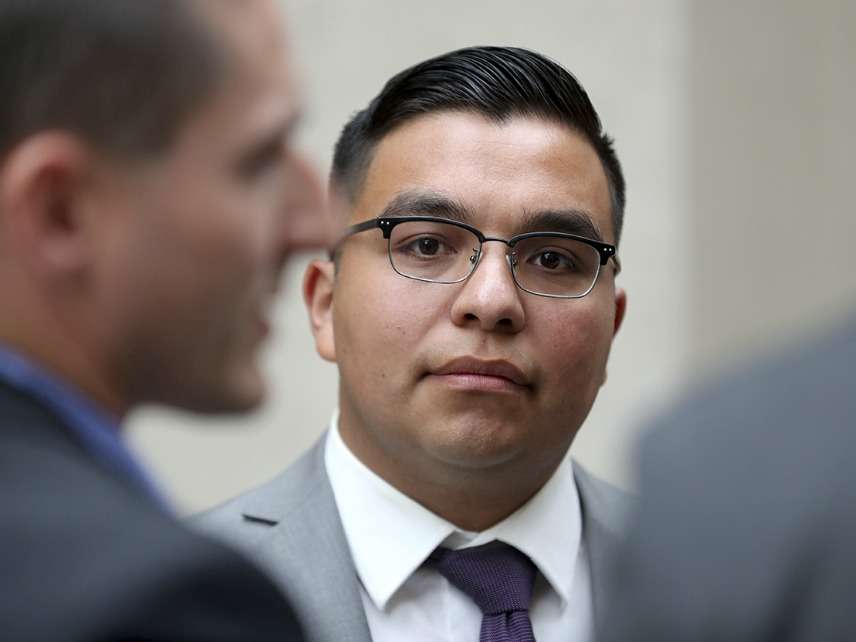Should the Cop Who Killed Philando Castile Face Federal Charges?
Although SCOTUS says otherwise, trying Jeronimo Yanez again for the same shooting would effectively be double jeopardy.

After Jeronimo Yanez, the Minnesota police officer who killed Philando Castile, was acquitted of second-degree manslaughter last week, Castile's family called upon the federal government to step in and see that justice is done. While that impulse is understandable, federal prosecution of Yanez after his state acquittal would be inappropriate and dangerous to civil liberties.
According to the Supreme Court's "dual sovereignty" doctrine, this sort of serial prosecution does not violate the Fifth Amendment's ban on double jeopardy: Although the underlying actions may be the same in both cases, there are two distinct offenses defined by two distinct governments. But there can be little doubt what is actually going on here.
"We would like to see if this could go to a federal court," Castile's uncle told the New York Daily News last week. "Even though this went the wrong way, we can still look for justice." In other words, the first jury got it wrong, so let's see what a second jury says. That is just the sort of abuse that the ban on double jeopardy was meant to prevent. It is functionally identical to trying Castile again in a Minnesota court, which according to the Supreme Court would be clearly unconstitutional.
A state jury unanimously acquitted Yanez of causing Castile's death through "culpable negligence." If Yanez were prosecuted under federal law in connection with the shooting, the charge would be that he "willfully" deprived Castile of his civil rights under color of law. If Yanez was not even culpably negligent, he cannot possibly be guilty of violating the federal statute, which has a stronger mens rea requirement. A federal prosecution therefore would be a clear repudiation of the state verdict and an attempt to "correct" it.
I agree with Castile's relatives that the state jury got it wrong. You might even argue that the not-guilty verdict was an example of jury nullification gone awry, that the jurors ignored the law to reach a result they considered just. If so, they were wrong. But there is no evidence that they were malicious or corrupt, and there is no reason to think the state pulled any punches in prosecuting Yanez. There are no glaring flaws or failures of the sort that might justify federal intervention to vindicate Castile's rights. There is just an honest disagreement about what the verdict should have been.
Double jeopardy concerns aside, Yanez is almost certainly not guilty of violating the federal law. All the evidence suggests that he panicked and overreacted in the heat of the moment, meaning that he did not willfully violate Castile's rights.


Show Comments (23)